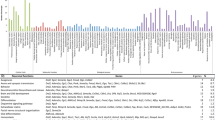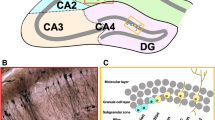Abstract
Among the more than 300 biological actions described for prolactin, its role in the neurogenic capacity of the hippocampus, which increases synaptogenesis and neuronal plasticity, consolidates memory and acts as a neuronal protector against excitotoxicity—effects mediated through its receptors are more recently known. The detection of prolactin in the hippocampus and its receptors, specifically in the Ammon’s horn and dentate gyrus, opened up a new field of study on the possible neuroprotective effect of hormones in a structure involved in learning and memory, as well as in emotional and behavioral processes. It is currently known, although controversial, that prolactin may be related to sex and age and that the hormone could be synthesized in the hippocampus itself. However, the regulatory mechanisms of changes in prolactin or in its hippocampal receptors still remain unknown. This review introduces the reader to general aspects concerning prolactin and its receptors and to what is currently known about the role prolactin plays in the brain and, in particular, in the hippocampus.


Similar content being viewed by others
References
Ben-Jonathan N, Hugo E (2015) Prolactin (PRL) in adipose tissue: regulation and functions. In: Diakonova M (ed) Advances in experimental medicine and biology, vol 846. Springer International Publishing, Cham, pp 1–35
Ben-Jonathan N, Mershonf JL, Allen DL, Steinmetz RW (1996) Extrapituitary prolactin: distribution, regulation, functions, and clinical aspects. Endocr Rev 17:639–669
Brooks CL (2012) Molecular mechanisms of prolactin and its receptor. Endocr Rev 33:504–525
Brown RS, Wyatt AK, Herbison RE, Knowles PJ, Ladyman SR, Binart N, Banks WA, Grattan DR (2016) Prolactin transport into mouse brain is independent of prolactin receptor. FASEB J 30:1002–1010
Brusco J, Wittmann R, de Azevedo M, Lcion A, Franci C, Giovenardi M, Rasia-Filho AA (2008) Plasma hormonal profiles and dendritic spines density and morphology in the hippocampal CA1 stratum radiatum, evidenced by light microscopy, of virgin and postpartum female rats. Neurosci Lett 438:346–350
Cabrera V, Cantú D, Ramos E, Vanoye-Carlo A, Cerbón M, Morales T (2009) Lactation is a natural model of hippocampus neuroprotection against excitotoxicity. Neurosci Lett 461:136–139
Cabrera-Reyes EA, Vergara-Castañeda E, Rivero-Segura N, Cerbón M (2015) Sex differences in prolactin and its receptor expression in pituitary, hypothalamus, ad hippocampus of the rat. Rev Mex Endocrinol Metab Nutr 2:60–67
Clemens JA, Sawyer BD (1974) Identification of prolactin in cerebrospinal fluid. Exp Brain Res 21:399–402
De Vito W (1988) Distribution of immunoreactive prolactin in the male and female rat brain: effects of hypophysectomy and intraventricular administration of colchicine. Neuroendocrinology 47:284–289
Emanuele N, Jurgens J, Halloran M, Tentler J, Lawrence A, Kelley M (1992) The rat prolactin gene is expressed in brain tissue: detection of normal and alternatively spliced prolactin messenger RNA. Mol Endocrinol 6:35–42
Ferraris J, Boutillon F, Bernadet M, Seilicovich A, Goffin V, Pisera D (2012) Prolactin receptor antagonism in mouse anterior pituitary: effects on cell turnover and prolactin receptor expression. Am J Physiol Endocrinol Metab 302:E356–E364
Ferraris J, Bernichtein S, Pisera D, Goffin V (2013) Use of prolactin receptor antagonist to better understand prolactin regulation of pituitary homeostasis. Neuroendocrinology 98:171–179
Fester L, Rune GM (2015) Sexual neurosteroids and synaptic plasticity in the hippocampus. Brain Res 1621:162–169
Fields K, Kulig E, Lloyd R (1993) Detection of prolactin messenger RNA in mammary and other normal and neoplastic tissues by polymerase chain reaction. Lab Investig 68:354–360
Furigo IC, Ramos-Lobo AM, Frazao R, Donato J Jr (2016) Brain STAT5 signaling and behavioral control. Mol Cell Endocrinol 438:70–76
Grattan DR (2015) The hypothalamo-prolactin axis. J Endocrinol 226:T101–T122
Harvey S, Martínez-Moreno CG, Luna M, Arámburo C (2015) Autocrine/paracrine roles of extrapituitary growth hormone and prolactin in health and disease: an overview. Gen Comp Endocrinol 220:103–111
Hirai J, Nishita M, Nakao N, Saito TR, Tanaka M (2013) Regulation of prolactin receptor gene expression in the rat choroid plexus via transcriptional activation of multiple first exons during postnatal development and lactation. Exp Anim 62:49–56
Kang J-H, Hassan SA, Zhao P, Tsai-Morris CH, Dufau ML (2014) Impact of subdomain D1 of the short form S1b of the human prolactin receptor on its inhibitory action on the function of the long form of the receptor induced by prolactin. Biochim Biophys Acta 1840:2272–2280
Kavarthapu R, Tsai Morris C-H, Dufau ML (2014) Prolactin induces up-regulation of its cognate receptor in breast cancer cells via transcriptional activation of its generic promoter by cross-talk between ERα and STAT5. Oncotarget 5:9079–9091
Kinsley CH, Trainer R, Stafisso-Sandoz G, Quadros P, Marcus LK, Hearon C, Meyer EA, Hester N, Morgan M, Kozub FJ, Lambert KG (2006) Motherhood and the hormones of pregnancy modify concentrations of hippocampal neuronal dendritic spines. Horm Behav 49:131–142
Lajud N, González-Zapien R, Roque A, Tinajero E, Valdez JJ, Clapp C, Torner L (2013) Prolactin administration during early postnatal life decreases hippocampal and olfactory bulb neurogenesis and results in depressive-like behavior in adulthood. Horm Behav 64:781–789
Larsen CM, Grattan DR (2012) Prolactin, neurogenesis, and maternal behaviors. Brain Behav Immun 26:201–209
Lévy F, Gheusi G, Keller M (2011) Plasticity of the parental brain: a case for neurogenesis. J Neuroendocrinol 23:984–993
Li J, Li W, Jiang ZG, Ghanbari HA (2013) Oxidative stress and neurodegenerative disorders. Int J Mol Sci 14:24438–24475
Mariani E, Polidori MC, Cherubini A, Mecocci P (2005) Oxidative stress in brain aging, neurodegenerative and vascular diseases: an overview. J Chromatography B 827:65–75
Morales T, Lorenson M, Walker AM, Ramos E (2014) Both prolactin (PRL) and a molecular mimic of phosphorylated PRL, S179D-PRL, protect the hippocampus of female rats against excitotoxicity. Neuroscience 258:211–217
Pardo GV, Goularte JF, Hoefel AL, de Castro AL, Kucharski LC, da Rosa AA, Lucion AB (2016) Effects of sleep restriction during pregnancy on the mother and fetuses in rats. Physiol Behav 1:66–76
Patil MJ, Henry MA, Akopian AN (2014) Prolactin receptor in regulation of neuronal excitability and channels. Channels (Austin) 8:193–202
Reyes-Mendoza J, Morales T (2016) Post-treatment with prolactin protects hippocampal CA1 neurons of the ovariectomized female rat against kainic acid-induced neurodegeneration. Neuroscience 328:58–68
Rivero-Segura NA, Flores-Soto E, García de la Cadena S, Coronado-Mares I, Gómez-Verjan JC, Ferreira DG, Cabrera-Reyes EA, Lopes LV, Massieu L, Cerbón M (2017) Prolactin-induced neuroprotection against glutamate excitotoxicity is mediated by the reduction of [Ca2+]i overload and NF-κB activation. PLoS One 12:e0176910
Roselli CE, Bocklandt S, Stadelman HL, Wadsworth T, Vilain E, Stormshak F (2008) Prolactin expression in the sheep brain. Neuroendocrinology 87:206–215
Sangeeta Devi Y, Halperin J (2014) Reproductive actions of prolactin mediated through short and long receptor isoforms. Mol Cell Endocrinol 382:400–410
Swaminathan G, Varghese B, Fuchs SY (2008) Regulation of prolactin receptor levels and activity in breast cancer. J Mammary Gland Biol Neoplasia 13:81–91
Tejadilla D, Cerbón M, Morales T (2010) Prolactin reduces the damaging effects of excitotoxicity in the dorsal hippocampus of the female rat independently of ovarian hormones. Neuroscience 169:1178–1185
Thébault S (2017) Potential mechanisms behind the anti-oxidant actions of prolactin in the retina. Exp Eye Res 160:56–61
Torner L, Karg S, Blume A, Kandasamy M, Kuhn HG, Winkler J, Aigner L, Neumann ID (2009) Prolactin prevents chronic stress-induced decrease of adult hippocampal neurogenesis and promotes neuronal fate. J Neurosci 29:1826–1833
Vergara-Castañeda E, Grattan DR, Pasantes-Morales H, Pérez-Domínguez M, Cabrera-Reyes EA, Morales T, Cerbón M (2016) Prolactin mediates neuroprotection against excitotoxicity in primary cell cultures of hippocampal neurons via its receptor. Brain Res 1636:193–199
Wagner K, Couillard-Despres S, Lehner B, Brockhoff G, Rivera FJ, Blume A, Neumann I, Aigner L (2009) Prolactin induces MAPK signalling in neural progenitors without alleviating glucocorticoid-induced inhibition of in vitro neurogenesis. Cell Physiol Biochem 24:397–406
Walker TL, Vukovic J, Koudijs MM, Blackmore DG, Mackay EW, Sykes AM, Overall RW, Hamlin AS, Bartlett PF (2012) Prolactin stimulates precursor cells in the adult mouse hippocampus. PLoS One 7:1–11
Author information
Authors and Affiliations
Corresponding author
Ethics declarations
Conflict of interest
The authors declare that they have no conflict of interest.
Rights and permissions
About this article
Cite this article
Carretero, J., Sánchez-Robledo, V., Carretero-Hernández, M. et al. Prolactin system in the hippocampus. Cell Tissue Res 375, 193–199 (2019). https://doi.org/10.1007/s00441-018-2858-2
Received:
Accepted:
Published:
Issue Date:
DOI: https://doi.org/10.1007/s00441-018-2858-2




